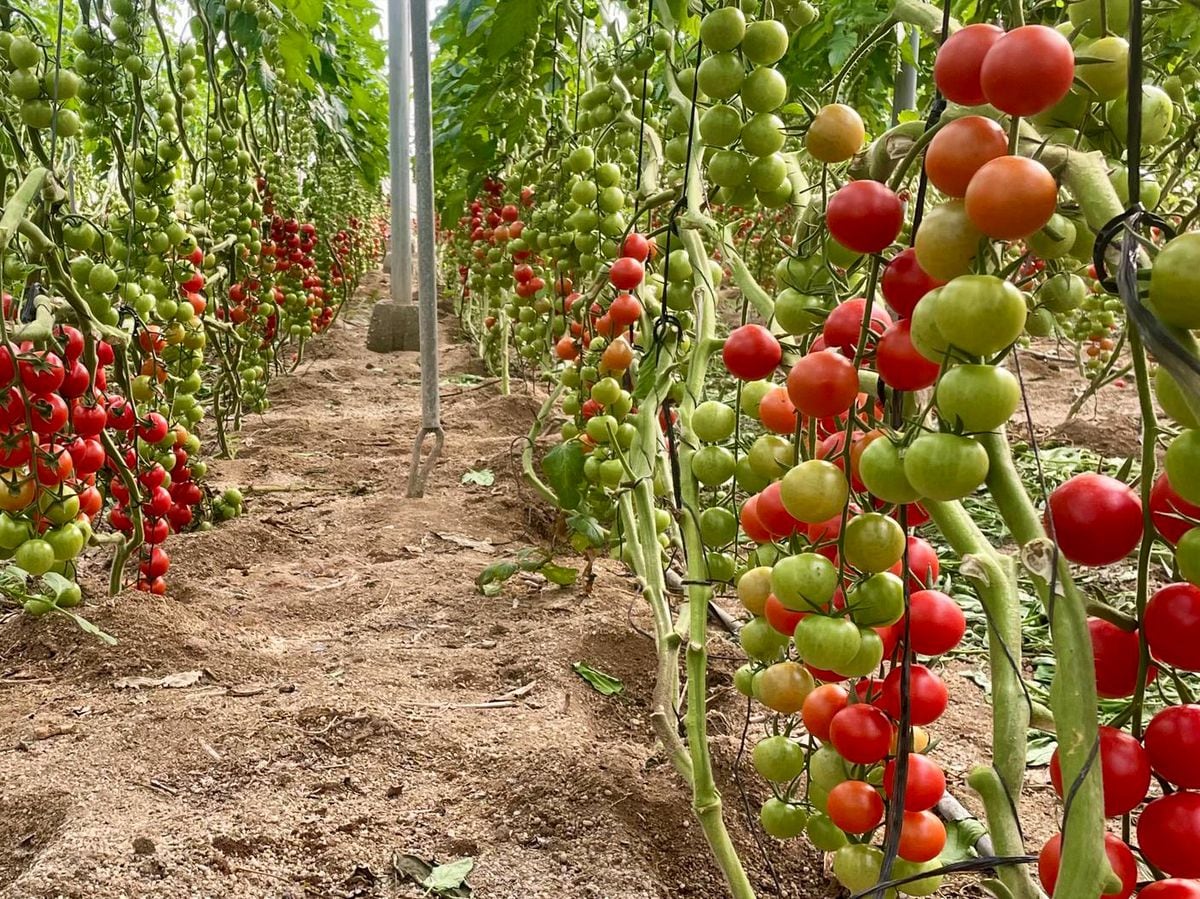Organic products - also called biological (bio) or organic - have entered fully into the crisis opened by French farmers in which Spanish transporters are being attacked.
The statements of Ségolène Royal, French Minister of Ecology, Sustainable Development and Ecology from 2014 to 2017, in which she assured that Spanish organic products are fake and that tomatoes, in particular, are inedible, have triggered a strong reaction from the sector .
“Have you tried Spanish organic tomatoes?
They can't be eaten.
They are fake bio.
These false bios do not respect the standards set by France,” she assured.
The President of the Government, Pedro Sánchez, responded this Thursday to what he described as “unfounded criticism” from the former minister.
Sánchez invited her to visit Spain to try any of the Spanish tomato varieties, because it is an “unbeatable” product.
Ecovalia, the professional association of organic production, has announced that it will report Royal to the State Attorney General's Office and the European Commission.
Is Spanish organic farming governed by the same regulations as the rest of the EU?
The organic production regulations are the same throughout the European Union.
It is regulated by a base community regulation 2018/848 and is directly applicable in all EU Member States.
Therefore, the production and control requirements are the same for everyone, clarifies the Ministry of Agriculture, Fisheries and Food.
Agence Bio, the French public organization in charge of the development and promotion of organic products, clarified yesterday to Efe that "a product with a bio label is organic, whether it comes from France, Spain or third European countries."
It does not contain synthetic chemicals, genetically modified organisms, dyes, synthetic chemical flavors or taste modifiers, the agency adds.
Helena Moreno, coordinator of Greenpeace's sustainable food system, assures that these demonstrations “generate distrust” in a procedure that is applied equally in the EU.
“There are a series of standards, such as the
eurosheet
[label by which an organic article is recognized], where the code of the control body and the place of origin appears,” she describes.
“These types of comments,” she continues, “which are due to a political position, discredit not only Spanish farmers but also the European Union, because it seems that its regulations are not applied well.”
VIDEO |
Pedro Sánchez responds to the criticism of Ségolène Royal, former French minister, about the Spanish tomato: “I invite you to come to Spain and try any of the varieties.
You will see that the Spanish tomato is unbeatable” https://t.co/QOJ2Ql0wFo pic.twitter.com/2I7r6qFWZT
— EL PAÍS (@el_pais) February 1, 2024
What is required of an agricultural operation to be certified as organic?
There are certifying entities that verify whether or not companies comply with the regulations, which vary whether they refer to plant or animal production.
Before obtaining the organic producer document, an agricultural operation must undergo a conversion period, the time necessary for a conventional product to become organic.
“For a tomato or cereal farm, it takes two years” until it can be said that what is harvested meets all the points of the regulations, indicates Álvaro Barrera, president of the organic production association Ecovalia.
For animals it is also two years and for other crops, such as nuts, citrus fruits or olive trees, it is three years.
Are inspections carried out?
Yes, it is the way to verify the regulations and have the certificate issued.
The EU establishes at least one official control for each operator per year and that, at least, 10% of the controls are without prior notice.
In the inspection, the inputs and outputs of fertilizers, phytosanitary products, feed, seeds, grains, animals, seedlings... and the outputs of the products are controlled, and it is also audited that the field is free of prohibited products.
And finally, samples can be taken to verify in an independent laboratory, accredited by the Member State, explains Barrera.
The latest data from the Ministry of Agriculture shows that at the end of 2022, 69,397 controls had been carried out on the 61,065 operators certified in organic production.
In these inspections, 6,330 suspicious samples were taken for laboratory analysis from 10% of the operators.
1,894 (2.7%) proven non-compliance were detected, of which 87 ended in disciplinary proceedings. Defects in documentation are the most frequent infraction, but 720 were also detected with traces of phytosanitary waste or unauthorized substances.
Farmer Esther Molina grows two and a half hectares of tomatoes in a greenhouse in Níjar (Almería) and explains that they carry out inspections from the Junta de Andalucía.
“They can come at any time and have access to invoices, purchases and have the possibility to analyze everything,” she responds.
In addition, twice a year she receives another visit from the organic certifiers who monitor “from the water to the products she uses.”
Molina belongs to a cooperative that sells throughout Europe and “they are very strict markets, there are supermarkets that have their own quality equipment.”
“I am outraged, a person must say something based on reality, she has appeared everywhere, today the networks are flying,” she laments.
Do organic tomatoes taste the same?
Royal's statements that organic Spanish tomatoes are inedible have, in turn, generated distrust in the quality of the product.
Almería farmer Esther Molín is outraged and responds that the flavor depends on the varieties.
She grows three: “The yellow and the cocktail are very delicious.”
She also points out that when a product is sent outside of Spain there is no possibility of letting it fully mature in the bush, and if it is put in the refrigerator it loses flavor.
“But that happens in Spanish and French agriculture, it has nothing to do with the way of production,” she says.
You can follow
Climate and Environment
on
and
X
, or sign up here to receive
our weekly newsletter
Subscribe to continue reading
Read without limits
Keep reading
I am already a subscriber
_

